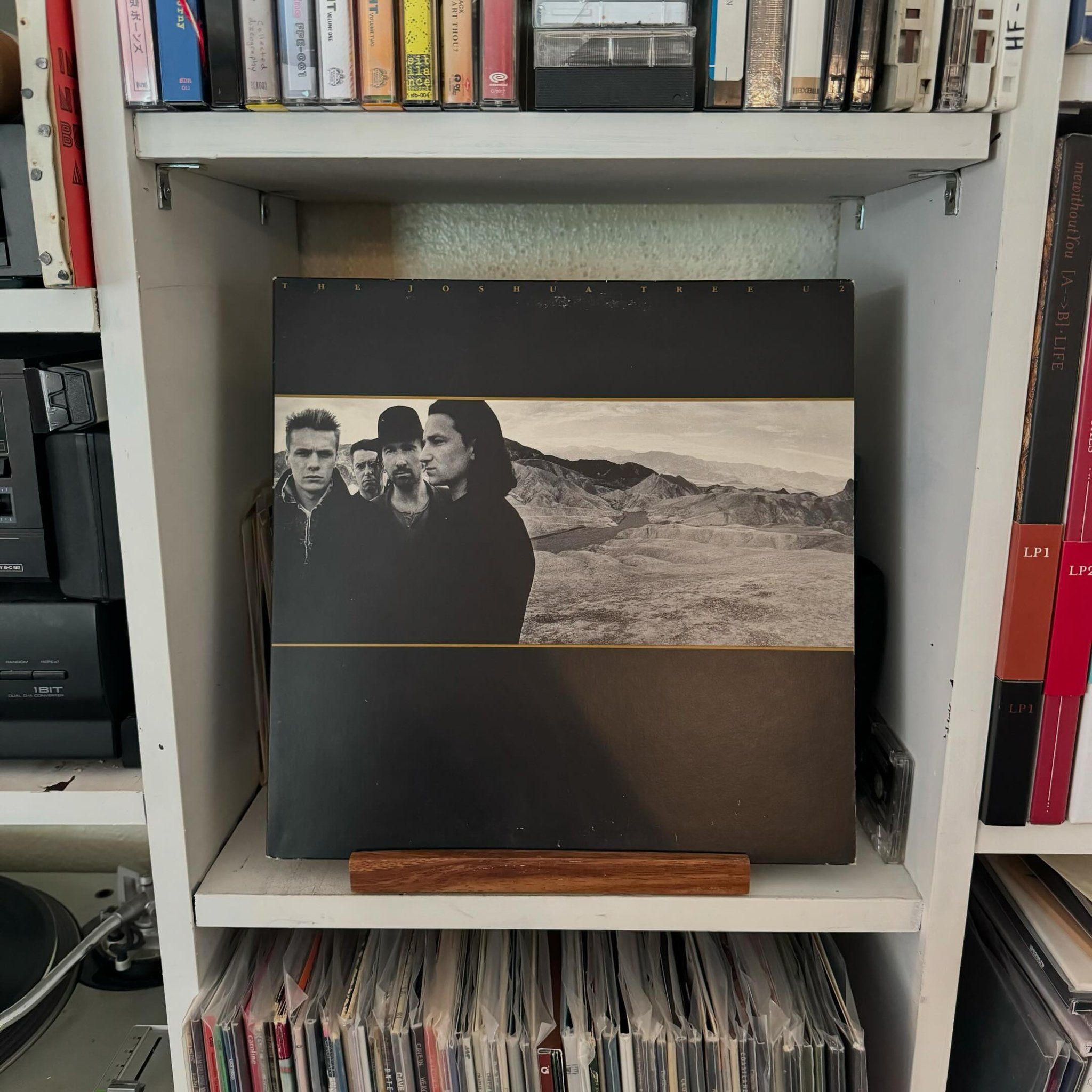
There are fixed points in music history. Records that are so singular that they transcend reality and become the thing of myth. For U2, that mythology is The Joshua Tree. While people can debate what their best record is all day, The Joshua Tree is certainly the U2-iest.
All of their tendencies are indulged to satiety. All of their sonic experimentation, spirituality, sociopolitical consciousness, rock and roll historicity, American fetishism, and grand ambitions are at play, without much restraint. It’s not a perfect record—a couple moments just don’t land just right.
But my word, when they do land…
The Joshua Tree has been so mythologized that it’s difficult to imagine it being created. It often feels like it was released ex nihilo, but its origin is a tangled web of loose threads that were woven into a rich tapestry.
Much has been written about the factors that went into creating this record. There was have the influence of Brian Eno and Daniel Lanois, returning after the highly experimental Unforgettable Fire experiments with a more focused approach. Add to this Bono’s burgeoning friendships with Mick Jagger, Keith Richards, and Bob Dylan, his fascination with the writings of Norman Mailer, and a trip to Central America where he witnessed the affects. These all created a reflection of the United States that showed a fascination with American Roots music, a pathos for the desperation of the folks who slip through the cracks of American domestic policy, and a distaste for American foreign policy. You also have the death of New Zealander friend and roadie suffered a fatal crash while returning Bono’s motorcycle to him.
It’s all here on the tape, nestled in soundscapes and melodies designed to reach the back row of their ever-increasing venue sizes. And the result is some of the most iconic and indelible pop music ever created.
It opens with one of the best four-song runs ever put to tape. “Where the Streets Have No Name” opens with a reverent longing to find a place where all things shall be put to rights. “I Still Haven’t Found What I’m Looking For” weighs the promise of faith with the liminality of living in an imperfect world. “With or Without You” takes that same tension and turns it toward interpersonal relationships. Then “Bullet the Blue Sky” tears the roof off of to show the combat helicopters circling overhead. As an aside, “Bullet the Blue Sky” was the first U2 song I remember becoming aware of, albeit through the P.O.D. cover on The Fundamental Elements of Southtown. And what a joy it was to come to the original and discover that it was just as badass.
It’d be hard for anyone to follow up that quartet. I’ve often joked that U2 fell off halfway through The Joshua Tree and never recovered (much more on that later), but I have seen the light. The rest of the record might suffer in the shadow of the opening movement, but what do you expect after four songs that are arguably 11/10 stars (or higher)? “Running to Stand Still” might feel like a buzzkill, but I’ve recently come around on its understated beauty, especially after thinking of it more like a bluesy version of “Bad.”
That said, the B-side takes a while to find itself. “Red Hill Mining Town” feels a little unfinished—even by the band’s own admission. “In God’s Country” is mostly fine, but is a little uninspired. I’m not sure I’ll ever really like “Trip Through Your Wires,” which replaces Edge’s trademark guitar soundscapes with jangling acoustic guitar and a blaring harmonica. It’s a little jarring, especially considering that the Edge probably took the electric guitar further away from the blues than any guitarist before him. Listening through their discography chronologically, it’s the first song in their career that don’t enjoy, and it’s always annoyed me that this was the rabbit trail that they wanted to chase on Rattle & Hum (which I have no affinity toward).
But after they get the honky tonk out of their system, the record finds its footing again. “One Tree Hill” is an emotional ode to friend and crew member Greg Carroll, whom Bono met while jet lagged on tour in Auckland, New Zealand. Unable to sleep, he met some locals who showed him some spots around the city—including Maungakiekie, also called One Tree Hill, which is one of the more spiritually significant sites for the Maori people. Bono was only able to complete one take before getting too emotional to try again. “Exit,” the only other song that comes close to “Bullet the Blue Sky,” was improvised during a jam session and edited into a violent rocker. “Mothers of the Disappeared” once again reflects on Bono’s time in Latin America, this time reflecting on the kidnapping of children by South American dictators implanted by American intelligence agencies—though you’d never guess at its sinister lyrical themes judging by the subdued synth-heavy track that accompanies him.
It’s little wonder that this record has been certified 25x Platinum. While I usually hold record sales as more or less irrelevant to the quality of the music, this is one case where the legends about a record ring true. It was not only the peak of their commercial career, but it’s arguably their artistic peak as well. It pairs all of the atmospheric luster of The Unforgettable Fire with the sociopolitical urgency of War, and the spiritual musings of October, all wrapped in an arena-ready package to rival Achtung Baby’s rock and roll excess. Even if it isn’t my favorite U2 record (we’ve already established that that’s The Unforgettable Fire), it’s pretty much objectively true that this is their most important album. And if nothing else, it is as holistic a culmination of their 80s period as could be created—especially with the left turns to follow.